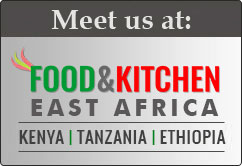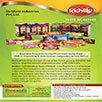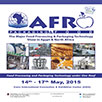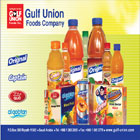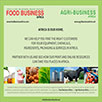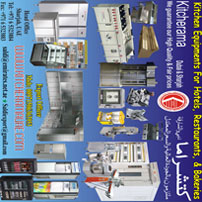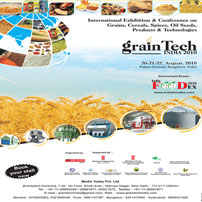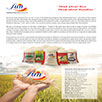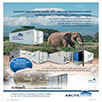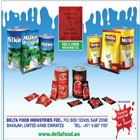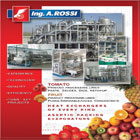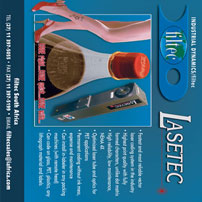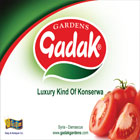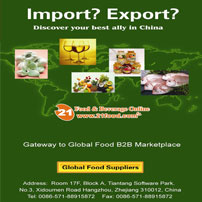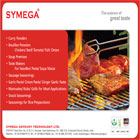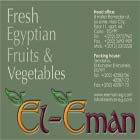

M a r k e t N e w s
East Africa: Investment in Irrigation Only Way to Ensure Food Security
Posted on : Tuesday , 24th January 2017
.jpg)
Dar es Salaam — As Tanzania grapples with delayed rains that are certain to adversely affect agriculture, new analyses tout increased investment in irrigation as a solution to food insecurity.
Tanzania generates its food mostly through rain-fed agriculture which is currently being threatened by drought facing East African countries.
Agriculture accounts for about 25 per cent of the gross domestic product (GDP) and the sector employs nearly 70 per cent of the working population.
Most parts of the country received rains below average between October and December last year and there are signs there will be insufficient harvests this agricultural season.
As experts advise the government to evaluate the drought in order to have a clear picture of what the food situation will be in the next few months and take the necessary precautionary measures, irrigation farming is being suggested as the long-term intervention needed to save agriculture. Tanzania is one of the countries which have a huge potential for irrigation farming--a potential that hasn't been well exploited.
The National Irrigation Master Plan (NIMP) 2002 prepared by the Ministry of Agriculture, Food, Security and Co-operatives in collaboration with the government of Japan through its International Cooperation Agency (Jica) indicated that the total irrigation development potential in Tanzania Mainland stands at 29.4 million hectares.
Out of those, 2.3 million hectares are classified as high potential, 4.8 million hectares medium potential and 22.3 million hectares as low potential.
However, presently only 460,000 hectares are under irrigation. However, the government says it targets to expand irrigation farming to cover at least one million hectares come 2020.
The director general of the National Irrigation Commission, Mr Seth Luswema, says there is political will to develop irrigation in the country but more investment focus is needed from both the public and the private sector.
"We are now reviewing the irrigation masterplan as part of our effort to reach the targets," he said over the phone, adding:
"Funding is still a challenge and as you know, it depends on the revenue collection. Some projects are integrated to have water resources and generate power. This kind of investment is not a joke. It needs collective efforts from public and private sectors," he added.
He said Tanzania needs between Sh2 trillion and Sh5 trillion to complete irrigation projects that will increase the coverage to one million hectares as planned.
According to him, Tanzania has 2,800 irrigation schemes countrywide.
The minister for Water and Irrigation, Mr Gerson Lwenge, was quoted by the media last year as saying that more than Sh39 billion was allocated to the Irrigation Commission for the current budget year.
Tanzania enacted the National Irrigation Act 2013 in a bid to protect farmers from the growing stresses of extreme weather and climate change, by promoting better use of irrigation.
The National Irrigation Act strengthens the National Irrigation Policy of 2010.
Among other things, the law establishes the Irrigation Commission, a national body with the mandate to coordinate, promote and regulate irrigation activities across the country.
Researchers and experts are rooting for more investment in the irrigation farming as solution for the farmers to manage drought caused by climate change and reduce hunger.
"The development of irrigated agriculture has boosted agricultural yields and increased the number of cropping seasons to two or more in many parts of the world, thereby conserving important forest resources, contributing to price stability under climate variability, and helping to feed the world's growing population," says the deputy director of the Environment and Production Technology Division of the Washington-based International Food Policy Research Institute (IFPRI) Claudia Ringler in a summary of new analyses.
For instance, rice production in irrigation schemes with developed infrastructure is estimated to be over 5.0 tonnes per hectare while under rain-fed agriculture the yield is less than 2 tonnes per hectare.
Last October, the 2016 Global Hunger Index (GHI) of the IFPRI ranked Tanzania 96 out of 118 countries, with a "serious" level of hunger. The country has made significant progress in reducing hunger, according to the report though, down from a high of 42.4 score in the "alarming" category in 2000 to 28.4 in 2016.
The GHI is a tool designed for the IFPRI to comprehensively measure and track hunger globally, regionally, and by country.
Tanzania, Kenya, Uganda and Rwanda were in the same group of "serious" level of hunger but with different scores.
The analyses indicate that a combination of accelerated irrigation development with increased investments in water use efficiency at the basin scale would reduce prices of rice, wheat, and maize by 7.4 per cent, 3.6 per cent, and 1.5 per cent, respectively by 2030.
"Although some of these investments might seem expensive, they would provide huge benefits to communities in the developing world and have the potential to help millions leave poverty and hunger behind," adds Ms Ringler.
Source : allafrica.com


